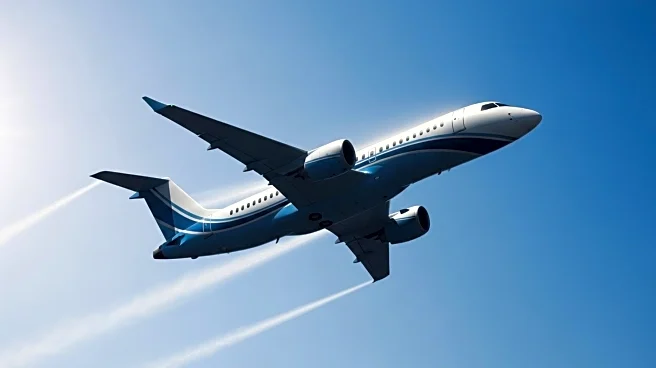What's Happening?
Pierre Jeanniot, former CEO of Air Canada and Director General of IATA, is celebrated for his transformative contributions to the aviation industry. Jeanniot's career began at Air Canada in 1955, where he rose through the ranks to become CEO from 1984 to 1990. He was instrumental in the development of the 'black box' flight data recorder and the implementation of the Reservec II, a pioneering real-time computer reservation system. His leadership extended to the establishment of non-smoking flights and the introduction of ETOPS, allowing twin-engine airliners to safely cross the Atlantic. At IATA, Jeanniot increased airline membership and initiated the IATA Operational Safety Audit (IOSA), significantly enhancing global aviation safety standards.
Why It's Important?
Jeanniot's innovations have had a lasting impact on aviation safety and efficiency. The 'black box' flight data recorder is now a standard safety feature in aircraft worldwide, providing crucial data in the event of accidents. The Reservec II system revolutionized airline reservation processes, setting a precedent for real-time data management in the industry. His advocacy for non-smoking flights contributed to healthier travel environments, while ETOPS expanded operational capabilities for airlines, reducing costs and increasing route flexibility. Jeanniot's work at IATA strengthened global safety protocols, ensuring rigorous safety audits and fostering international cooperation among airlines.
What's Next?
Jeanniot's legacy continues to influence aviation safety and operational standards. The IOSA program remains a cornerstone of IATA's safety initiatives, with ongoing audits ensuring compliance with international safety standards. Airlines worldwide continue to benefit from the technological advancements and safety protocols he championed. As the aviation industry evolves, Jeanniot's contributions serve as a foundation for future innovations in safety and efficiency.
Beyond the Headlines
Jeanniot's career highlights the importance of visionary leadership in driving industry-wide change. His ability to foresee and implement technological advancements has set a benchmark for future leaders in aviation. The ethical considerations of safety and passenger well-being that he prioritized continue to resonate in today's industry, emphasizing the need for ongoing innovation and adherence to safety standards.










